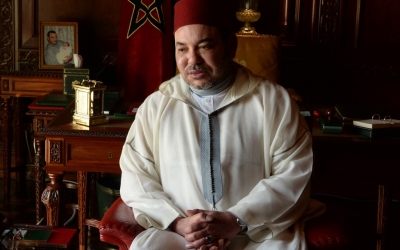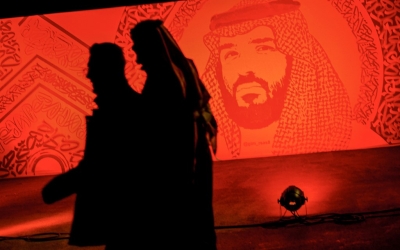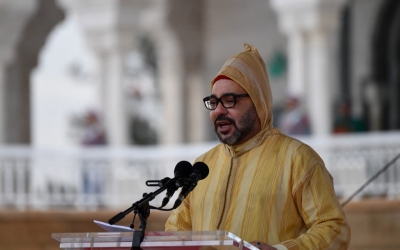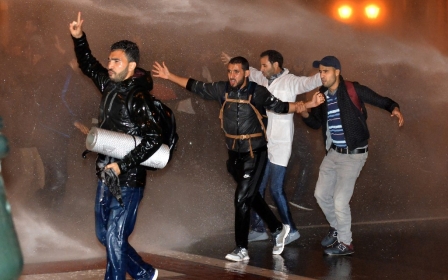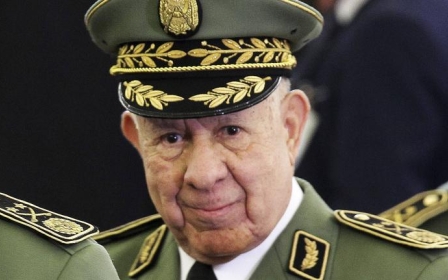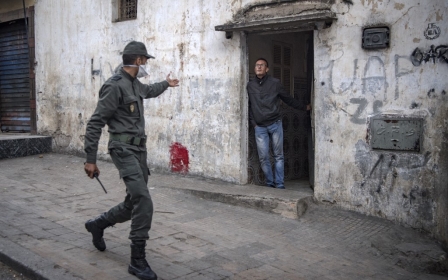Morocco's Mohammed VI: Is his son ready for the crown?
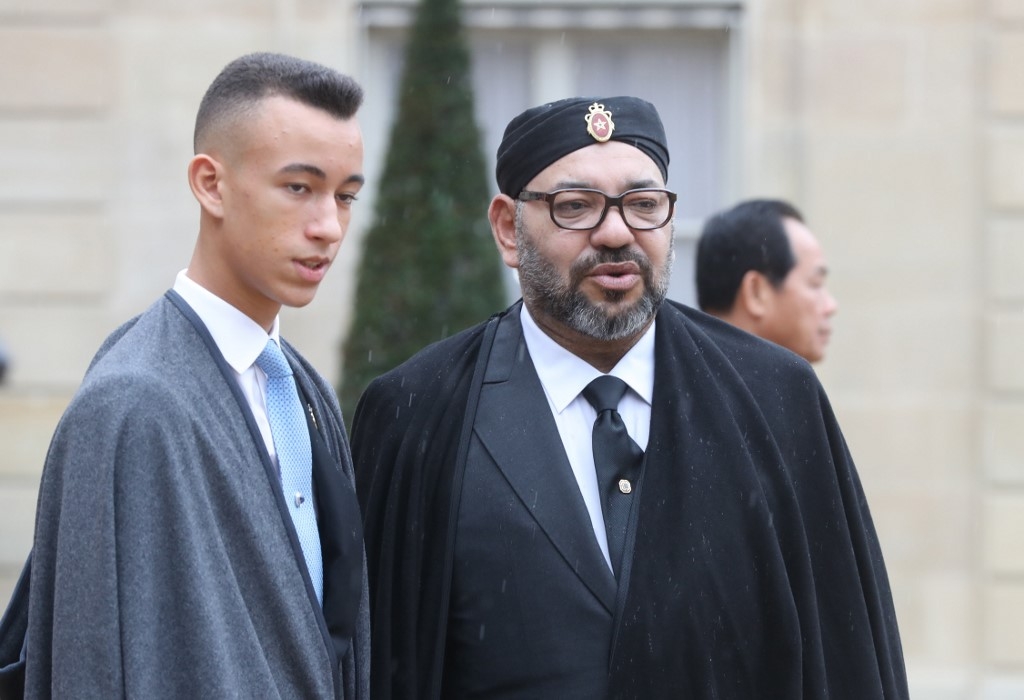
With Morocco in lockdown during the global health crisis, the official palace communique last month came like a hammer blow. Mohammed VI was said to have recently undergone successful heart surgery in Rabat, but owing to Morocco’s border lockdown, he would be unable to make trips abroad.
Rumours were soon rife about the sovereign’s condition, who has since appeared somewhat weakened, particularly when delivering royal speeches.
Succession, and the future of Mohammed VI’s reign, is on everyone’s lips - albeit discreetly, for fear of a run-in with Moroccan intelligence.
Cautious stance
This is a precaution that the editor of the Arabic-language weekly al-Michaal would surely agree with. In 2009, he was imprisoned for publishing a story on the king’s poor health. He has since been at the helm of a digital news channel that generates scoops - at the government’s behest.
New MEE newsletter: Jerusalem Dispatch
Sign up to get the latest insights and analysis on Israel-Palestine, alongside Turkey Unpacked and other MEE newsletters
Succession today has become an intricate affair aiming to perpetuate the absolute power of 'God's shadow on earth'
The taboo subject of the king’s health continues to unleash passions and to fuel extravagant scenarios. This accounts for the regime’s communique, meant to reassure and to provide precise information on the nature of the monarch’s illness.
The Moroccan press has thus chosen to take a cautious stance by carefully avoiding the subject altogether. The Arabic-language weekly al-Ayam’s 22 July edition published a remarkably titled dossier on the crown prince: “When the long life of his father, Mohammed VI, comes to an end, Morocco’s next king will be a pilot and a businessman.”
For several years now, the Moroccan regime has been hard at work preparing the succession of the future king to ensure the perpetuation of the monarchy by divine right.
'Manufacturing kings'
Succession today has become an intricate affair aiming to perpetuate the absolute power of “God’s shadow on earth”. Since the reign of Mohammed V, the “manufacturing of kings” has been entrusted to a handful of trustworthy men, carefully selected to steer a bureaucratic machine generously funded with public money.
The first step is attendance at the Royal Academy founded in 1942 by Mohammed V, where the crown prince is welcomed by classmates. There, as tradition has it, the future king receives a well-rounded education in both theology and modern academic subjects, as well as in sports and the arts, not to mention palace protocol, which includes the etiquette and rules of the royal court.
Protocol includes dress code and table manners when receiving foreign delegations, public speechmaking, presiding over official events, managing business portfolios, and even initiating political and diplomatic debates behind closed doors.
None of this seems particularly odd if one follows the official red-carpet track set out by the court. But Mohammed VI and the palace bigwigs are there, behind the scenes, to ensure the future king’s succession goes off without a hitch.
A secret protocol has even been established to facilitate the crown prince’s ascension to the throne should the Moroccan monarch die unexpectedly.
Humanising the crown prince
Staunch defenders of the monarchy are attempting to portray the future king, Moulay Hassan, in a humanist light, emphasising his ties to his mother, Princess Lalla Salma (particularly after her unofficial separation with the Moroccan king), his connection with ordinary citizens, and his supposed dislike of having his hand kissed while performing state duties.
Yet, this particular aspect of the future monarch’s personality, if it indeed actually exists, cannot stand in for the decisiveness, composure and pragmatism that he will have to show.
Official propaganda wants to influence the Moroccan public by suggesting a resemblance between the profiles of Moulay Hassan and his grandfather, Hassan II
Should the king die before his successor comes of age, the young man - still ony 17 - will have to show the determination of a man capable of taking on adversaries to defend the monarchy. This is what the regime is mainly concerned with.
Prior to being made supreme commander of the Royal Armed Forces, the crown prince was instructed in the handling of light weapons and in security protocols for visits made alone or with his father. And for good reason: during a royal visit to northern Morocco in August 2017, the crown prince’s bodyguard, Khalid el-Wahi, was found dead in his hotel room in mysterious circumstances.
In April 2017, a video posted online (then quickly deleted) showed the future king telling off a bodyguard, who was apparently slow to open the king’s car door. One source close to the palace described, on condition of anonymity, the general intractability of the crown prince, who had no qualms about interrupting a horseback-riding lesson to severely chastise another rider. The unfortunate rider had apparently lacked the presence of mind to properly stress the second syllable of the word "master" when addressing his royal highness.
According to the same source, in October 2019, the future king flew into a rage over the terrible condition of the road to Skhirat (26 km from Rabat), where he was going to inquire about the health of his aunt. The governor is said to have immediately launched a public works campaign to avoid sanctions.
Under the military's watchful eye
This penchant for overbearingness could be indicative of the future monarch’s personality. He never seems to bat an eyelash, for example, when his supporters gather to greet him - and block roads to the capital along the way, preventing families from getting their children to school on time.
From a political perspective, official propaganda wants to influence the Moroccan public by suggesting a resemblance between the profiles of Moulay Hassan and his grandfather, Hassan II. One online news site drew a parallel between the crown prince’s uniform at an official ceremony in 2015 and that of King Hassan II (who was then crown prince) in the mid-1930s, at one of his first public appearances.
Recognising the power of the military in Morocco, the king in recent years has entrusted his successor with the task of officiating at military ceremonies, and the crown prince can count on the support of the military to help consolidate his reign.
With this in mind, Mohammed VI previously effected a major change to the country’s security organisation, probably under pressure from western powers. In January, he created a “special military body” to oversee palace security instead of police and intelligence agencies. With the royal army firmly at his side, the future king would be less exposed to a military coup attempt, as was the case during his grandfather’s reign.
Absolute power
In accordance with the provisions of Article 43 of Morocco’s 2011 Constitution, the crown is hereditary and is handed down from father to son in direct line. Thus, the crown prince, who has no brothers, has no potential rival.
Anxious to anticipate risks that could disrupt the course of succession, in 2016, the regime adopted a law defining the functions of a consultative body known as the Regency Council. The council exercises the powers and constitutional rights of the crown until the king reaches the age of 18. The new law adopted by the regime of Mohammed VI has increased the powers of the future Hassan III.
The future king, despite his youth, will be vested with absolute power enabling him to exercise the rights and privileges previously granted to the Regency Council
Though it is stated in the constitution that the council shall exercise all powers “except those relative to the revision of the Constitution”, the new law effectively bypasses those constitutional provisions by excluding “the prerogatives vested in His Majesty the King by virtue of legislative texts”.
Consequently, the duties of the Regency Council have been significantly reduced, in that it no longer exercises any rights or powers. In short, the future king, despite his youth, will be vested with absolute power enabling him to exercise the rights and privileges previously granted to the Regency Council.
Royal fortunes
Wealth is undeniably a guarantee when it comes to ensuring the future king’s maintenance of power. Emoluments received allow him to reward the faithful and to coerce his opponents, all while enjoying a luxurious lifestyle.
King Mohammed VI perfectly illustrates the “king-cum-savvy businessman” model. His private fortune is estimated at roughly $8.2bn. The occasionally questionable origins of his fortune aside - think Panama Papers - his son is thought to be the richest child in the world.
In a nation ravaged by poverty and unemployment, luxury is the hallmark of the royal family. In July 2018, Middle East Eye revealed that the king had offered a private jet to the crown prince - fully customised with the latest Israeli technology - with a price tag of more than $67m.
With absolute powers and constitutional rights, the unconditional support of the military, and a colossal royal fortune, Mohammed VI and his entourage believe they hold the winning hand for consolidating the reign of the crown prince and perpetuating the Alaouite dynasty.
But the road to power is paved with uncertainties - and that power is a mere pipe dream without the voluntary support of the people.
It therefore seems that succession is less a question of the “manufacturing of kings” than it is of the establishing of laws - laws that promote the emergence of a genuine democracy capable of distinguishing between matters of politics and theology. This is the true path to establishing a rule of law capable of limiting the power of a single man cast in the role of God’s representative on earth.
The opinions expressed in this article are those of the author and do not necessarily reflect the editorial policy of Middle East Eye.
This article has been translated and condensed from the MEE French edition.
Middle East Eye delivers independent and unrivalled coverage and analysis of the Middle East, North Africa and beyond. To learn more about republishing this content and the associated fees, please fill out this form. More about MEE can be found here.



